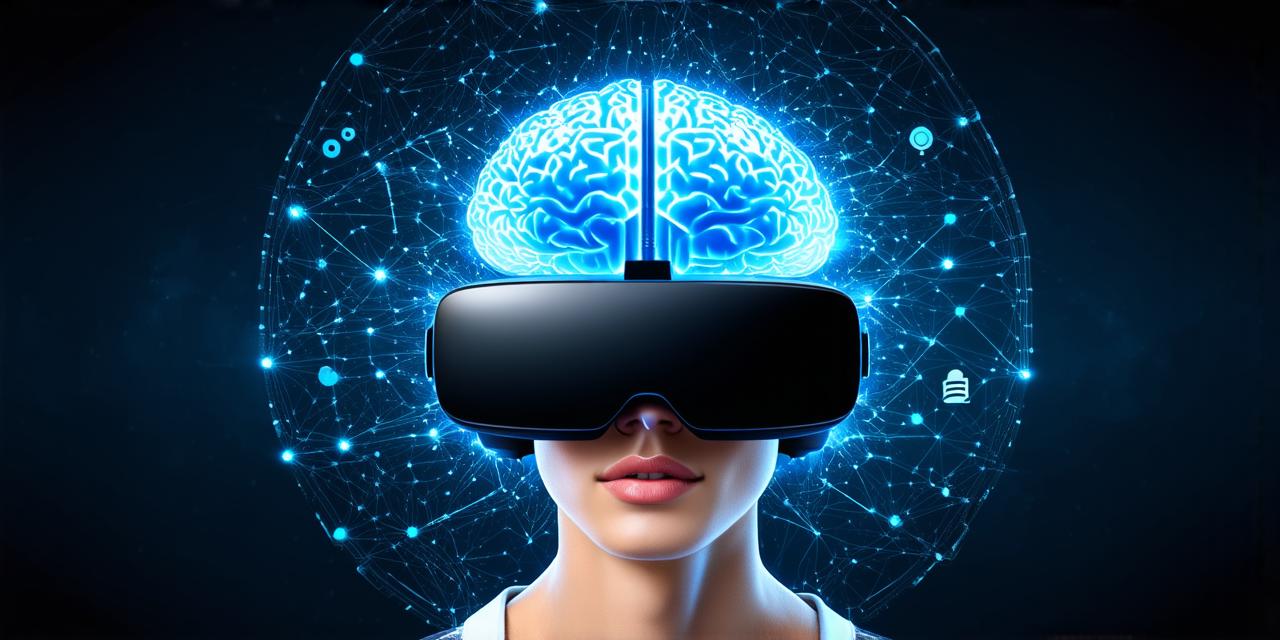Cognitive Processes and Virtual Reality
Virtual reality technology can be used to enhance cognitive processes such as problem-solving, decision-making, and critical thinking. For example, studies have shown that VR training can improve spatial reasoning skills in pilots and surgeons.
Furthermore, VR can also be used to simulate real-world scenarios, allowing individuals to learn and adapt to new environments quickly. This can be particularly useful in emergency response situations where time is of the essence.
Memory and Virtual Reality
Virtual reality technology has also been shown to improve memory retention and recall. Researchers believe that this is due to the fact that VR experiences are highly immersive and engaging, which can enhance the encoding of memories into long-term memory stores.
For example, students have been known to use VR simulations to learn about historical events or scientific concepts. By immersing themselves in these virtual environments, they can experience the event or concept in a more tangible way, which can lead to better retention and recall of information.
Attention and Virtual Reality
Virtual reality technology has also been shown to improve attention and concentration. This is because VR experiences are highly engaging and require individuals to pay close attention to their surroundings.
Additionally, VR can be used to create distraction-free environments, allowing individuals to focus on specific tasks without interruptions.
Emotional Regulation and Virtual Reality
Virtual reality technology can also be used to regulate emotions, particularly in situations where it is difficult or impossible to experience the situation in real life. For example, individuals who suffer from anxiety disorders can use VR simulations to confront their fears in a safe and controlled environment.
Furthermore, VR technology can also be used to enhance positive emotions such as joy and happiness. For instance, individuals who are unable to travel due to financial or other constraints can use VR simulations to experience different cultures and environments.
Case Studies: Virtual Reality in Healthcare
One example of the impact of virtual reality on healthcare is the use of VR for pain management. Patients who have undergone surgery or are suffering from chronic pain can use VR simulations to distract themselves from pain and reduce discomfort. Research has shown that this can lead to reduced opioid use and improved overall pain management.
Another example is the use of VR in rehabilitation therapy. Patients who have suffered injuries or illnesses can use VR simulations to practice physical movements and improve their range of motion. This can be particularly helpful for individuals who are unable to travel to rehabilitation centers or who require individualized attention.
Personal Experiences: Virtual Reality in Education
As a virtual reality developer, I have had the opportunity to work on several projects that have incorporated VR technology into educational settings. One project involved creating a virtual field trip for high school students to visit a local museum. The students were able to explore the museum in a highly immersive and engaging way, which led to improved retention and recall of information.
Another project involved creating a virtual reality simulation for a college-level science course. The students were able to perform experiments and observe phenomena that would have been difficult or impossible to replicate in real life. This allowed them to gain a deeper understanding of the concepts being taught, which led to improved grades on exams and assignments.
Expert Opinions: Virtual Reality and Brain Function
According to Dr. David Eagleman, a renowned neuroscientist and author, virtual reality technology has the potential to revolutionize the way we learn and interact with the world. He believes that VR can enhance cognitive processes such as memory, attention, and problem-solving by providing a safe and controlled environment for practice and feedback.
Similarly, Dr. Richard Nisbett, a cognitive psychologist and professor at the University of Texas at Austin, believes that virtual reality technology has the potential to improve emotional regulation and well-being. He notes that VR can be used to create distraction-free environments and expose individuals to situations they may not have access to in real life.
Summary: The Impact of Virtual Reality on Brain Function
Virtual reality technology has the potential to impact brain function in a variety of ways, including enhancing cognitive processes, memory retention and recall, attention, and emotional regulation. As developers create more immersive and interactive experiences, it’s important to understand how VR impacts brain function and use this knowledge to create more effective and engaging learning environments.
FAQs: Virtual Reality and Brain Function
1. How does virtual reality impact cognitive processes?
Virtual reality can enhance cognitive processes such as memory, attention, and problem-solving by providing a safe and controlled environment for practice and feedback.
2. Can virtual reality improve memory retention and recall?
Yes, studies have shown that virtual reality experiences can improve memory retention and recall due to their highly immersive and engaging nature.
3. How does virtual reality impact attention?
Virtual reality can improve attention by requiring individuals to pay close attention to their surroundings and by creating distraction-free environments.
4. Can virtual reality be used for emotional regulation?
Yes, virtual reality can be used to regulate emotions, particularly in situations where it is difficult or impossible to experience the situation in real life.
5. How does virtual reality impact brain function compared to traditional media?
Virtual reality technology has the potential to provide a more immersive and engaging experience than traditional media, which can enhance cognitive processes and emotional regulation.
